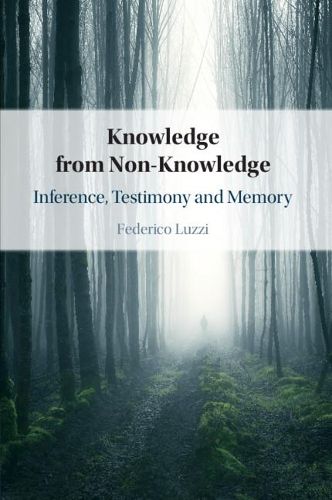Readings Newsletter
Become a Readings Member to make your shopping experience even easier.
Sign in or sign up for free!
You’re not far away from qualifying for FREE standard shipping within Australia
You’ve qualified for FREE standard shipping within Australia
The cart is loading…






According to the received view in epistemology, inferential knowledge from non-knowledge is impossible - that is, in order for a subject to know the conclusion of their inference, they must know the essential premises from which that conclusion is drawn. In this book, Federico Luzzi critically examines this view, arguing that it is less plausible than intuition suggests and that it can be abandoned without substantial cost. In a discussion that ranges across inference, testimony and memory he analyses the full range of challenges to the view, connecting them to epistemological cases that support those challenges. He then proposes a defeater-based framework which allows the phenomenon of knowledge from non-knowledge across these three epistemic areas to be better understood. His book will be of interest to a wide range of readers in epistemology.
$9.00 standard shipping within Australia
FREE standard shipping within Australia for orders over $100.00
Express & International shipping calculated at checkout
According to the received view in epistemology, inferential knowledge from non-knowledge is impossible - that is, in order for a subject to know the conclusion of their inference, they must know the essential premises from which that conclusion is drawn. In this book, Federico Luzzi critically examines this view, arguing that it is less plausible than intuition suggests and that it can be abandoned without substantial cost. In a discussion that ranges across inference, testimony and memory he analyses the full range of challenges to the view, connecting them to epistemological cases that support those challenges. He then proposes a defeater-based framework which allows the phenomenon of knowledge from non-knowledge across these three epistemic areas to be better understood. His book will be of interest to a wide range of readers in epistemology.